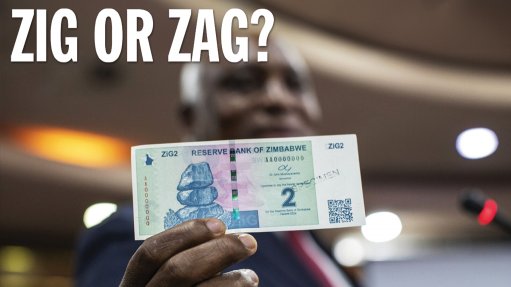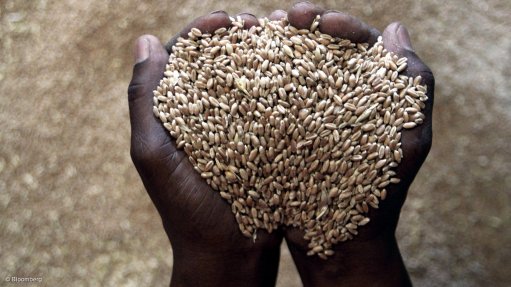SA moves to shore up African ‘gateway’ status amid concerns
Amid recurrent questions about whether South Africa will be able to sustain its position as a key ‘gateway’ to the rest of the continent – particularly in light of its relatively poor economic performance and a weakening attractiveness to investors, owing to rising costs structures and volatile industrial relations – government is moving to shore up the country’s position in this area.
In line with the National Development Plan’s (NDP’s) recommendation that South Africa should pursue “deeper” regional integration, Finance Minister Pravin Gordhan used his 2013 Budget to unveil a number of measures to stimulate cross-border trade and investment.
Noting that fast-growing Africa currently accounted for about 18% of South Africa’s total exports, and nearly one-quarter of manufactured exports, Gordhan promised that “simpler rules” would be introduced to reduce the time and costs of doing business in Africa.
“A number of measures are proposed to relax cross-border financial regulations and tax requirements on companies, making it easier for banks and other financial institutions to invest and operate in other countries,” he said, noting that the South African Reserve Bank had approved nearly 1 000 large investments into 36 African countries over the past five years.
Crucially, similar measures would apply to foreign companies wanting to use South Africa as their regional headquarters for investments into African countries.
The outward investment reforms that apply as part of the ‘Gateway to Africa’ reforms would, Gordhan added, also apply to those companies seeking to invest in countries outside Africa, including Brazil, Russia, India and China.
Commenting on the proposals, Ernst & Young associate director for international tax services Ide Louw said the gateway proposal would entitle a JSE-listed company to incorporate a South African subsidiary to hold African and offshore operations.
“Although the intermediate holding company (HoldCo) is a South African tax resident, it will not be regarded as a resident for exchange-control purposes, hence does not need approval to invest offshore,” Louw outlined.
The National Treasury said the development should incentivise companies to manage their African and offshore operations from South Africa, “maximising the benefits to South Africa’s economy”.
It also indicated that, following a pilot phase, the dispensation might be extended to other entities.
The HoldCos would be subject to the following conditions:
• They must operate as South African tax residents and be incorporated and effectively managed and controlled in South Africa.
• Transfers from the parent company to HoldCo would be limited to R750-million a year, with additional requests to be considered on application to the South African Reserve Bank.
• The HoldCos would be allowed to freely raise and deploy capital offshore, provided these funds did not include South African guarantees. However, additional domestic capital and guarantees would be allowed on funding “genuine” foreign direct investment.
• The entities would be allowed to operate as cash management centres for South African multinationals and cash pooling would be allowed without restrictions. Local income generated from cash management could also be freely transferrable.
• HoldCos would be entitled to choose their functional currency or currencies, and operate foreign currency accounts and a rand-denominated account for operational expenses.
• Only one wholly owned HoldCo per JSE-listed entity would be allowed. But conditions for jointly-owned HoldCos, multiple HoldCos and subsidiaries of non-listed entities may be prescribed in future.
• Appropriate governance and transparency arrangements would be required.
The National Treasury indicated in an appendix to the 2013 Budget that a complementary tax incentive would also be considered to allow HoldCos to use foreign functional currency for tax accounting. This would ensure that the entity was not taxable on currency gains and losses arising in the course of foreign functional currency treasury operations.
TRADE FACILITATION
In addition, in response to a recent Parliamentary question, Trade and Industry Minister Dr Rob Davies reported the negotiating principles for the tripartite free trade area (T-FTA) had been agreed.
The T-FTA involving members of the Southern African Development Community (SADC), the Common Market of Eastern and Southern Africa and the East African Community began in June 2011 with the intention of combining the markets of 26 countries, which comprise a population of nearly 600-million and a combined gross domestic product of $1-trillion a year.
Davies said the key principle was that negotiations would take place among T-FTA members with no preferential arrangements in place, which meant that there would be no reopening of the SADC Trade Protocol.
Also critical to the process were infrastructure initiatives focused on the ‘North-South Corridor’, where emphasis would be given to upgrading road links. Projects had also been identified for rail, border posts and port development.
Studies had also been commissioned to assess the work programmes needed to bolster productive capacity through the development of regional value-chains.
Davies had stated previously that South Africa intended to sustain its gateway status, but was alive to the notion that there would be multiple gateways into the continent, which would compete on the basis of their attractiveness to investors.
In his Budget address, Gordhan argued that South African already had substantial strengths on which to build.
He listed these as being a well-established legal system, secure property rights, an effective tax system, world-class higher education institutions and science councils, established energy, transport, water and communications infrastructure networks, expertise and capacity in areas such as mining, construction, retail, finance, logistics and manufactured exports, and a sound macroeconomic and fiscal framework.
Also emphasised was the fact that South African development financiers, such as the Industrial Development Corporation and the Development Bank of Southern Africa, and State-owned companies were already involved in “substantial” direct regional investments.
Comments
Announcements
What's On
Subscribe to improve your user experience...
Option 1 (equivalent of R125 a month):
Receive a weekly copy of Creamer Media's Engineering News & Mining Weekly magazine
(print copy for those in South Africa and e-magazine for those outside of South Africa)
Receive daily email newsletters
Access to full search results
Access archive of magazine back copies
Access to Projects in Progress
Access to ONE Research Report of your choice in PDF format
Option 2 (equivalent of R375 a month):
All benefits from Option 1
PLUS
Access to Creamer Media's Research Channel Africa for ALL Research Reports, in PDF format, on various industrial and mining sectors
including Electricity; Water; Energy Transition; Hydrogen; Roads, Rail and Ports; Coal; Gold; Platinum; Battery Metals; etc.
Already a subscriber?
Forgotten your password?
Receive weekly copy of Creamer Media's Engineering News & Mining Weekly magazine (print copy for those in South Africa and e-magazine for those outside of South Africa)
➕
Recieve daily email newsletters
➕
Access to full search results
➕
Access archive of magazine back copies
➕
Access to Projects in Progress
➕
Access to ONE Research Report of your choice in PDF format
RESEARCH CHANNEL AFRICA
R4500 (equivalent of R375 a month)
SUBSCRIBEAll benefits from Option 1
➕
Access to Creamer Media's Research Channel Africa for ALL Research Reports on various industrial and mining sectors, in PDF format, including on:
Electricity
➕
Water
➕
Energy Transition
➕
Hydrogen
➕
Roads, Rail and Ports
➕
Coal
➕
Gold
➕
Platinum
➕
Battery Metals
➕
etc.
Receive all benefits from Option 1 or Option 2 delivered to numerous people at your company
➕
Multiple User names and Passwords for simultaneous log-ins
➕
Intranet integration access to all in your organisation

















